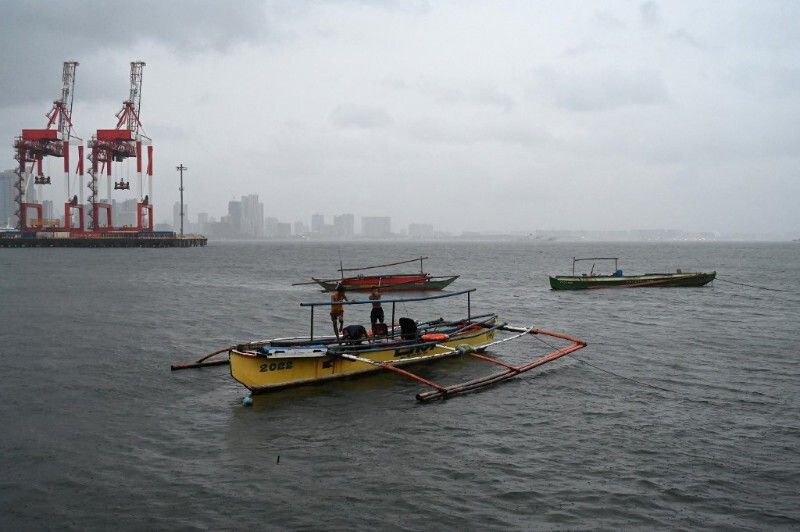Ramping up domestically sourced manufacturing investments

Last month, the Stratbase ADR Institute held its two-day annual Pilipinas Conference, which gathered top government officials, industry leaders and other stakeholders to share their insights on the most pressing political, economic and social challenges faced by the country today.
The second session of the conference touched on the pivotal role of the private sector in nation-building and how its partnerships with the government can promote inclusive growth and sustainable development in the long run.
In his speech, Ambassador and Head of the Delegation of the European Union (EU) to the Philippines Luc Véron emphasized how open trade and investment play a critical role in generating the growth and jobs that are needed by Europe and its trading partners. He added: “Beyond legislation and beyond economic agreements, global challenges can only be addressed through international cooperation. We have to embark on the same journey. This is the only way to achieve sustainable transformation of our economies and create a better life for us and future generations.”
Indeed, strengthening trade relations among countries fuels economic growth and productivity, boosts competitiveness, ensures food security, creates more jobs, and expands export and import markets.
Latest data from the Philippine Statistics Authority (PSA) show that the country’s total trade in October 2022 grew by 12.3% year-on-year. However, a downside still persists.
The trade gap continues to widen as imports, which accounted for 58.8% of the total external trade in the same month, exceed the country’s exports and dominate the total trade. In short, the country still runs on a trade deficit, which means that the country is shelling out more foreign currency for its imports than what it receives through its exports. This could be because the country is operating from a position of weakness.
With a negative balance of trade, the Philippines needs to squarely address the situation by increasing its export production and reducing its reliance on imports. This can be done by encouraging more investments in the manufacturing sector. If it cannot export more due to its inability to compete with imported products, the government can at least ramp up production of goods needed by the domestic market.
This can range anywhere from generating ample supply of agricultural produce to feed the local population, and providing local retailers with materials for construction, among others. This will contribute to increasing the country’s productivity and cater to the needs of the growing domestic market. When there are more local manufacturers of goods for the domestic market, the service sector supporting it will grow as well, since the distribution of the products will drive up the need for more distribution players.
Amid the rapidly evolving global economic and political landscape, it is highly crucial for the Philippines to pursue investment-led growth now and create a policy environment that is conducive for businesses, especially those engaged in manufacturing. For some time, the government has mainly prioritized economic reforms and incentives targeting foreign investments, in the process leaving out opportunities for investments from local investors who cater to the domestic market.
Latest data from the PSA indicate that the total investment pledges of both foreign and Filipino nationals on the manufacturing sector in the third quarter of 2022 amounted to P10.78 billion, accounting for only 6.8% of the total. This represented a 73.6% contraction year-on-year and was also lower than the P17.70 billion level that was recorded in the previous quarter.
With more support from the government, the country’s manufacturing sector can further grow and reach its full potential. Issues usually cited by manufacturers such as the ease of doing business, high costs of electricity, lack of access to raw materials should likewise be addressed.
Manufacturing ventures do not have to be always big-scale productions. For purposes of market stability, it is even better to have many small-and-medium scale producers of various items scattered in as many locations in the country.
These activities can, in turn, bring about a domino effect by boosting the country’s productivity and increasing output while generating more jobs, providing income security, alleviating poverty, and revitalizing consumer spending that could keep the economy running strong. While it is ideal to have export-oriented enterprises that generate millions of dollars for the country, equally important are the domestic-oriented enterprises that are capable of providing the basic necessities of the larger population.
A focus on pursuing an investment-led growth, coupled with human capital development, will serve as a foundation in transforming the Philippine economy into one that is more resilient and sustainable.In turn, this will drive up employment for the large pool of a young and talented workforce who, through re-skilling, upskilling and other forms of training, can sustain the country’s shift to production and investment-led economic growth.
Data from the World Bank show that the Philippines is the 13th most populated country in the world in 2021, with around 111 million people. Interestingly, the Philippines is said to have reached a demographic sweet spot, with over 63% of the population representing those who are of working age or are economically active in 2020, based on data from the PSA. Given the Philippines’ demographics, investors engaged in manufacturing may also be encouraged to be more inward-looking to make goods and services more affordable and accessible to the domestic market.
Ultimately, this nationally driven collective push will create a sustainable momentum towards overall economic growth that can be enjoyed by the future generations to come.
Venice Isabelle Rañosa is a research manager at think tank Stratbase ADR Institute.
- Latest




























